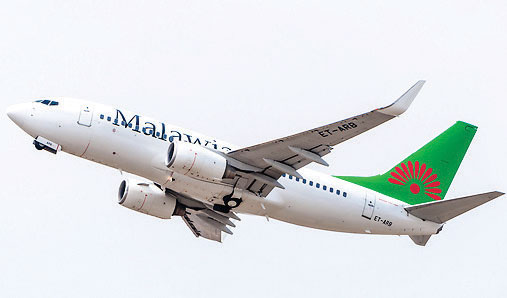Medical Tourism to Get Affected in the US Due to This New Rule?


In March 2025, Robert F. Kennedy Jr., the head of the U.S. Department of Health and Human Services (HHS), unveiled a sweeping plan to restructure and reduce the department’s workforce. The new direction for the department centers around combatting chronic illness and refocusing efforts on improving health through the promotion of clean water, safe food, and the elimination of environmental toxins. However, this overhaul comes at a significant cost, including 10,000 job cuts and the closure of several regional offices, which has far-reaching consequences not just for public health, but for the broader tourism and travel industry.
Reorganization and Job Cuts: A New Direction for HHS
One of the key components of this restructuring is a dramatic reduction in personnel. The department’s workforce, which had stood at 82,000 employees, is set to be reduced by 25%, leaving only 62,000 employees. The Health and Human Services Department is consolidating its 28 divisions into 15 new ones, including a newly proposed Administration for a Healthy America (AHA). This reorganization focuses on addressing chronic diseases and shifting the focus of the department’s core mission towards promoting overall wellness and eliminating environmental health risks.
The cuts to departments such as the Food and Drug Administration (FDA), Centers for Disease Control and Prevention (CDC), and the National Institutes of Health (NIH) are part of an overall strategy designed to reduce government spending. These cuts, while framed as a necessary part of a “streamlining” process, will significantly impact the availability of public health services that support travelers.
Impact on Public Health Services and Tourism
The drastic cuts to the workforce at these critical agencies may affect travelers in numerous ways:
- Health and Safety Standards: The FDA’s role in ensuring the safety of food and medical products used by travelers will be hampered by a reduction of 3,500 full-time employees. This may lead to slower processing times for approving essential health-related products such as travel vaccines, food safety regulations, and medical devices crucial to tourists’ health.
- Travel Health and Preparedness: The CDC, which monitors and manages health threats for travelers, will also be reducing its staff by 2,400 employees. This may lead to reduced surveillance and response times for health risks such as disease outbreaks that often affect travelers, especially during high-tourism seasons. This is particularly concerning in a world increasingly focused on pandemic preparedness.
- Access to Public Health Services: The closure of regional offices, which help to ensure the accessibility and safety of healthcare services in remote regions, could disproportionately affect tourists traveling in rural or underserved areas. The lack of a local point of contact for health issues might make it harder for tourists to receive timely healthcare or emergency services.
These cuts come at a time when global travel is steadily rebounding, and international tourist flows are increasing. Reduced access to key health services not only jeopardizes the safety of travelers but also risks undermining the international tourism sector that depends on strong public health oversight.
The Broader Repercussions for Travel and Tourism
The restructuring of HHS and its effect on public health will likely resonate through the travel and tourism sector. Here are a few ways these changes could impact both the industry and travelers:
- Travel Destinations with Health-Related Attractions: Destinations known for medical tourism, such as the Caribbean, Mexico, and parts of Southeast Asia, might see reduced demand for their health and wellness offerings due to less regulatory oversight on healthcare standards. If travelers cannot rely on U.S.-based organizations like the FDA or CDC for their health and safety guidance, they may be reluctant to visit destinations that are perceived as high-risk in terms of medical care.
- Risk Management for Travel Agencies: Travel agencies and tour operators who plan tours that include health services such as vaccination clinics, wellness retreats, or medically assisted tours may face increased liability risks. They may also struggle to ensure the safety of travelers without the support and guidance of established public health organizations.
- Increased Healthcare Costs for Travelers: With the cutbacks to Medicare and Medicaid services, travelers who rely on government assistance for health-related expenses might face greater out-of-pocket costs for medical services while traveling. This could particularly affect tourists who come from countries with reciprocal healthcare agreements with the U.S. and may now find it more difficult to access affordable medical care while traveling.
The Closing of Regional Offices: Implications for Travelers’ Access to Services
As part of the restructuring plan, five out of ten regional offices within the department are slated for closure. This is likely to have far-reaching implications for travelers in need of emergency health services. Regional offices provide crucial local connections for addressing healthcare issues that arise while traveling, and their closure may lead to:
- Increased delays in emergency services: For travelers who find themselves in need of urgent care, these closures could delay the response times of necessary services, particularly in more remote or rural locations.
- Challenges for international tourists: International tourists who rely on international health services could face delays in securing vaccinations or in emergency health care services. This may affect tourist confidence and deter people from visiting destinations that are dependent on quick-response health infrastructure.
Public Health and Environmental Safety: A Focus for the New Administration
The new administration’s focus is shifting toward tackling chronic illness and promoting healthy lifestyles. The Administration for a Healthy America (AHA) will work to create policies that target food safety, clean water, and the elimination of toxic substances. While this could have positive long-term effects on public health, it also has the potential to impact the travel industry in the following ways:
- Destinations focused on wellness tourism: Countries and regions that promote wellness tourism (e.g., Thailand, Bali, and India) might see a shift in demand as travelers look for health-conscious travel experiences. The new priorities around clean water and safe food could make certain destinations more attractive to health-focused travelers.
- Traveler Awareness: As the U.S. works on better monitoring and controlling environmental toxins, this will have a ripple effect globally. Tourists increasingly prioritize destinations that align with their values of sustainable tourism and ecological health.
Impact of Federal Job Cuts on Global Medical and Health Tourism
One of the most immediate effects of the massive cuts to health services, particularly those related to public health, is the potential slowdown in medical tourism. Countries like India, Mexico, and Turkey, which have established themselves as key destinations for medical tourism, may face new challenges as travelers seek assurances from public health institutions before booking services.
- Medical tourism costs could rise as public health authorities reduce their ability to monitor and oversee international health services.
- Countries promoting wellness tourism, such as Thailand and Indonesia, may see increased demand as travelers seek destinations with a strong focus on environmental sustainability and health safety.
A Changing Landscape for the Travel Industry
The restructuring of the Department of Health and Human Services and its focus on chronic illness prevention is reshaping the public health landscape in the United States. The impact of these changes will reverberate across the travel industry, especially as it relates to tourism infrastructure, health-related services, and medical tourism.
While the reshuffling of resources in the department and the shifting focus toward environmental health may have long-term benefits for public health, the immediate consequences for travelers and tourism professionals are significant. Travelers may find themselves faced with increased health-related risks while abroad and unpredictable access to health services. Tourism providers will need to reassess the role of public health services and medical insurance in their offerings to ensure travelers remain confident and safe.
The post Medical Tourism to Get Affected in the US Due to This New Rule? appeared first on Travel And Tour World.
What's Your Reaction?
 Like
0
Like
0
 Dislike
0
Dislike
0
 Love
0
Love
0
 Funny
0
Funny
0
 Angry
0
Angry
0
 Sad
0
Sad
0
 Wow
0
Wow
0














































